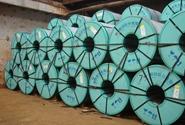Government/Policy

November 8, 2016
U.S. DOC Initiates Circumvention Inquiry on Corrosion Resistant Steels
Written by John Packard
On Monday the U.S. Department of Commerce, responding to petitions from ArcelorMittal, Nucor, US Steel, AK Steel, Steel Dynamics and California Steel, initiated an inquiry of circumvention of the antidumping (AD) and countervailing duty (CVD) orders against China. The probe will be for hot rolled and cold rolled substrate supplied by China to Vietnam for the purposes of converting to coated products which was then exported to the United States. The U.S. steel mills allege the transformation from hot rolled and cold rolled to coated products is not significant
The DOC initiated the anti-circumvention inquiry based on the following criteria (same as cold rolled initiation):
1) Merchandise imported into the U.S. is of the same class or kind as merchandise produced in a foreign country that is subject to an AD/CVD order or filing.
2) Before importation into the U.S. such imported material is completed or assembled in another foreign country from material which is subject to the order [AD/CVD] produced by a foreign country subject to the order.
3) The process of assembly or completion mentioned in #2 is minor or insignificant.
4) The value of the merchandise produced in the foreign country to which the AD or CVD order applies [i.e. China] is a significant portion of the total value of the merchandise exported to the U.S.
5) The administering authority determines that action is appropriate to prevent evasion of such order or ruling.
The key to finding China/Vietnam to be circumventing AD/CVD orders against China will be how the US Department of Commerce determines what is significant transformation of the HRC/CRC substrate. There are five factors considered when determining what is minor or insignificant processes:
1) The domestic steel industry is arguing that the amount of investment necessary to convert to coated steels is “insignificant.” They put the cost of a facility to convert HR/CRS to CORE is between $70 and $150 million. At the same time they put the cost to produce HRS from an integrated steel mill in China to be $295 million to $10.1 billion.
2) The domestic mills are asserting there is limited or no research and development in Vietnam to produce CORE from substrate.
3) Additional processing of CORE producers in Vietnam is minimal. At the same time the domestic mills say the manufacturing process for hot rolled is complex.
4) Production facilities in Vietnam are limited compared to China. They put producers of flat rolled products in Vietnam to total fewer than a dozen companies.
5) As with cold rolled the domestic steel mills are saying the cost to convert HR or CR to CORE in Vietnam from HR substrate is 60 to 79 percent while from CRS it would be 84 to 90 percent. The total value being added in Vietnam is alleged to be 10 to 31 percent.
The key to this inquiry relates to the pattern of trade from Vietnam of CORE products. In 2014 Vietnam was a small source of corrosion resistant steels to the U.S. The same can be said of CORE shipments between January 2015 to July 2015. The last five months of 2015 saw CORE products begin to surge.
The US DOC found enough evidence (all presented by the domestic steel industry with comments being made from various domestic and foreign trading sources and steel mills) in order to issue an investigation. There was not enough evidence for the DOC to issue a preliminary ruling.
The DOC will establish a schedule for questionnaires and comments and will issue a final determination within 300 days of the publication of the initiation documents in the Federal Register.







